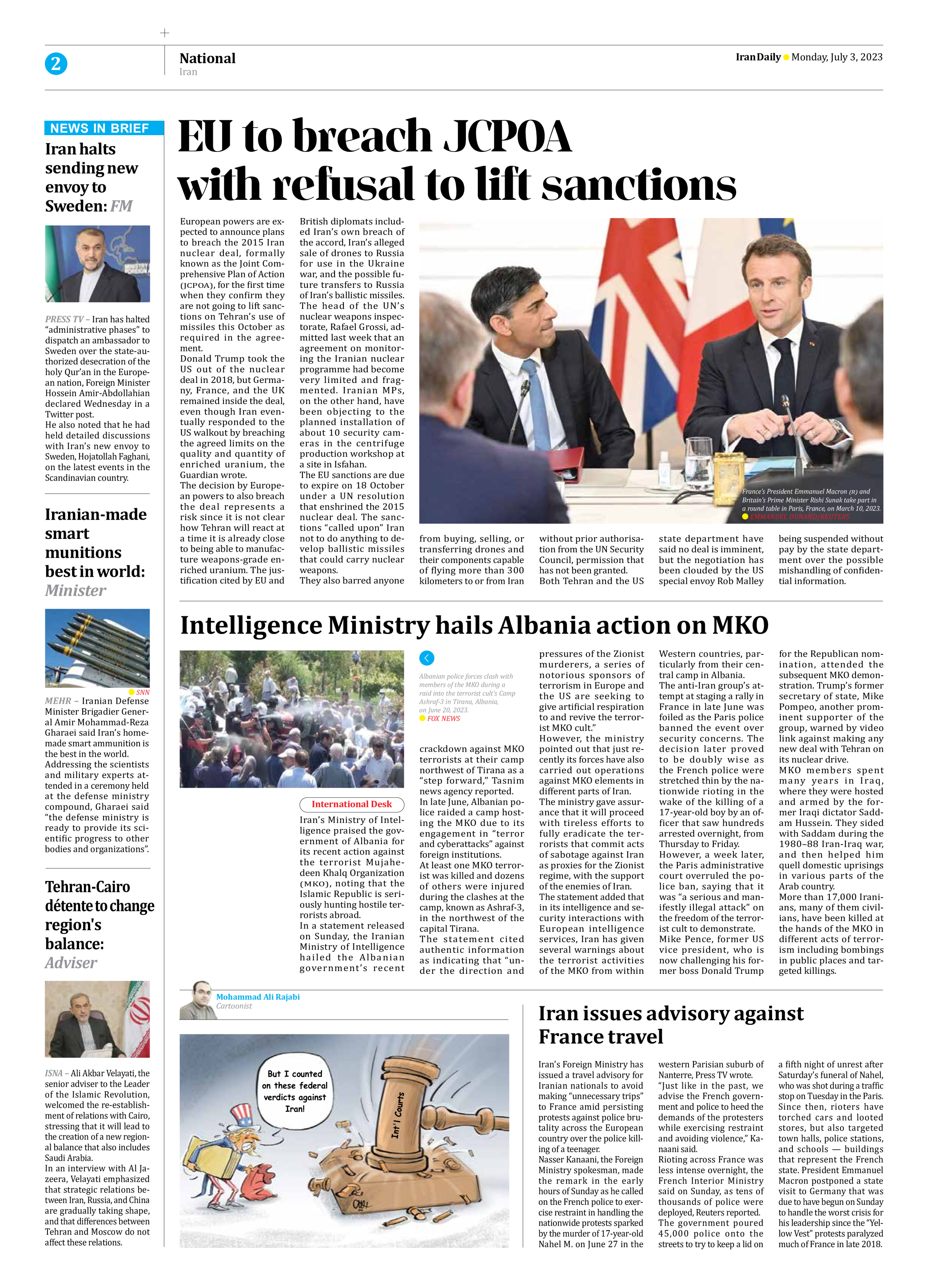
EU to breach JCPOA with refusal to lift sanctions
European powers are expected to announce plans to breach the 2015 Iran nuclear deal, formally known as the Joint Comprehensive Plan of Action (JCPOA), for the first time when they confirm they are not going to lift sanctions on Tehran’s use of missiles this October as required in the agreement.
Donald Trump took the US out of the nuclear deal in 2018, but Germany, France, and the UK remained inside the deal, even though Iran eventually responded to the US walkout by breaching the agreed limits on the quality and quantity of enriched uranium, the Guardian wrote.
The decision by European powers to also breach the deal represents a risk since it is not clear how Tehran will react at a time it is already close to being able to manufacture weapons-grade enriched uranium. The justification cited by EU and British diplomats included Iran’s own breach of the accord, Iran’s alleged sale of drones to Russia for use in the Ukraine war, and the possible future transfers to Russia of Iran’s ballistic missiles.
The head of the UN’s nuclear weapons inspectorate, Rafael Grossi, admitted last week that an agreement on monitoring the Iranian nuclear programme had become very limited and fragmented. Iranian MPs, on the other hand, have been objecting to the planned installation of about 10 security cameras in the centrifuge production workshop at a site in Isfahan.
The EU sanctions are due to expire on 18 October under a UN resolution that enshrined the 2015 nuclear deal. The sanctions “called upon” Iran not to do anything to develop ballistic missiles that could carry nuclear weapons.
They also barred anyone from buying, selling, or transferring drones and their components capable of flying more than 300 kilometers to or from Iran without prior authorisation from the UN Security Council, permission that has not been granted.
Both Tehran and the US state department have said no deal is imminent, but the negotiation has been clouded by the US special envoy Rob Malley being suspended without pay by the state department over the possible mishandling of confidential information.







